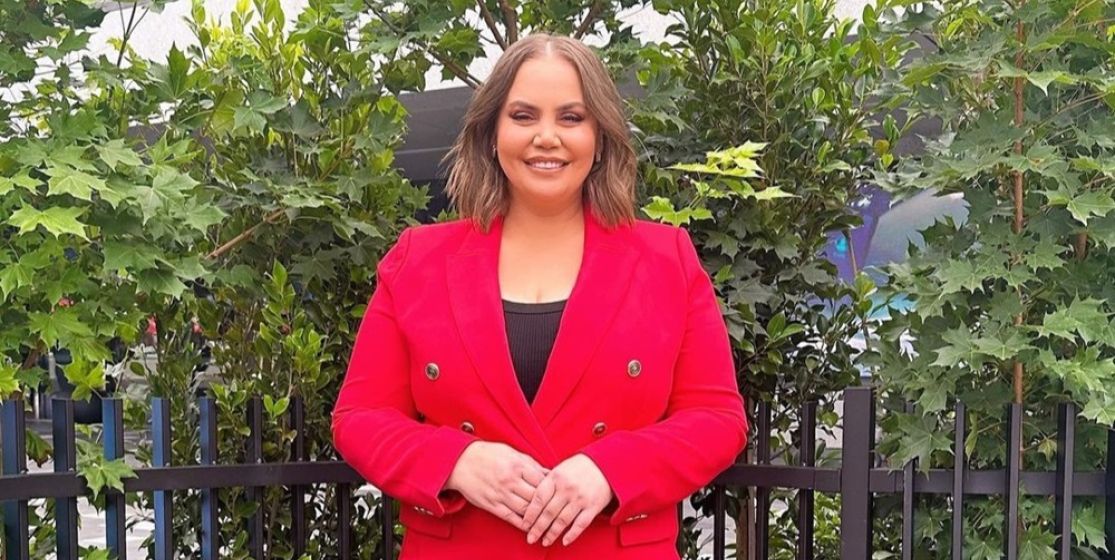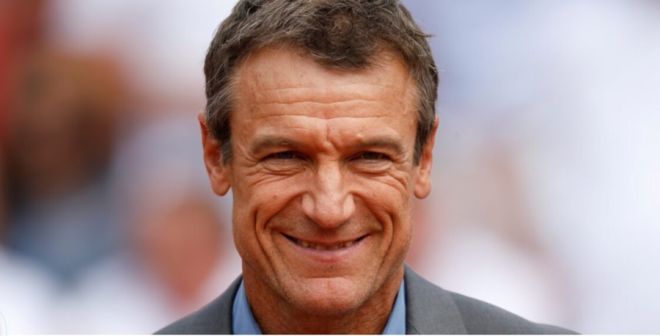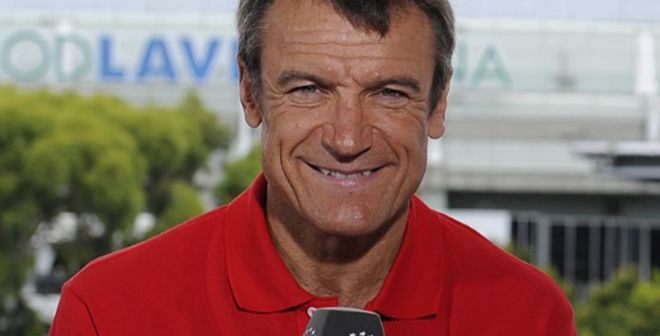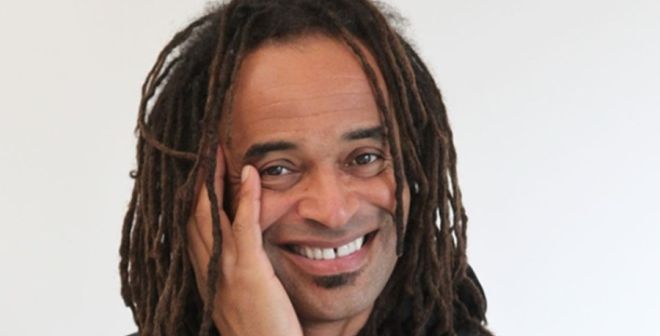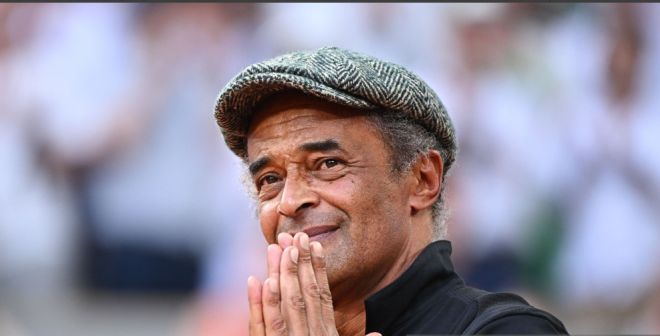My first question is probably the most important question I want to ask you. How are you? How do you feel? How do you feel within yourself? Tell me that.
DOKIC: Yeah, actually I get asked that a lot these days. I can safely say, it’s the best I have ever felt and the happiest I have ever been, there’s no doubt about that, so I’m really comfortable where I am in my life, who I am and the way I have come through certain things which to be honest with you I really didn’t think I would. So, yeah, I’m really happy with where I am personally, professionally and after everything that’s happened I’m especially really happy I have been able to find something after my tennis career as well, which is not easy, and that was not easy for me either. Also just privately I think, after having a lot of toxic relationships and having a lot of difficult things I went through, adversity and especially trauma, to have come out where I can come out and definitely say I have come out the other end happier and stronger, I can really say now I have turned 40, last year, that I’m the happiest I have ever been.
That smile is on your face, and you use the word “happy” which I want to ask you about. How is that happiness, is it contentment, or is it beyond that?
DOKIC: Yeah, content and really centred. I’m just really happy with who I am. I have been able to find my voice which, when you have grown up for the majority of your life that you’ve been told the opposite and scared into the opposite, and being constantly scared into not even allowing to say a word or be who you are, it’s tough. I kinda always knew I was this different person than what I was forced to be for a very long time, and I even lost myself for a while after I left home. But to have come out the other end, find my voice to be able to tell my story, not just to start the healing process for myself but to actually be able to do something good with it for others as well. Something we don’t and haven’t talked about in sport and outside of sport when it comes to domestic violence, mental health and child abuse, things that are very close to my heart. I can really say I am extremely happy and content and centred and just very, probably for the first time in my life, very sure of myself and I know I am worthy for the first time in my life. It might sound weird, but when you have lived pretty much 40 years of your life not feeling that it’s quite a discovery.
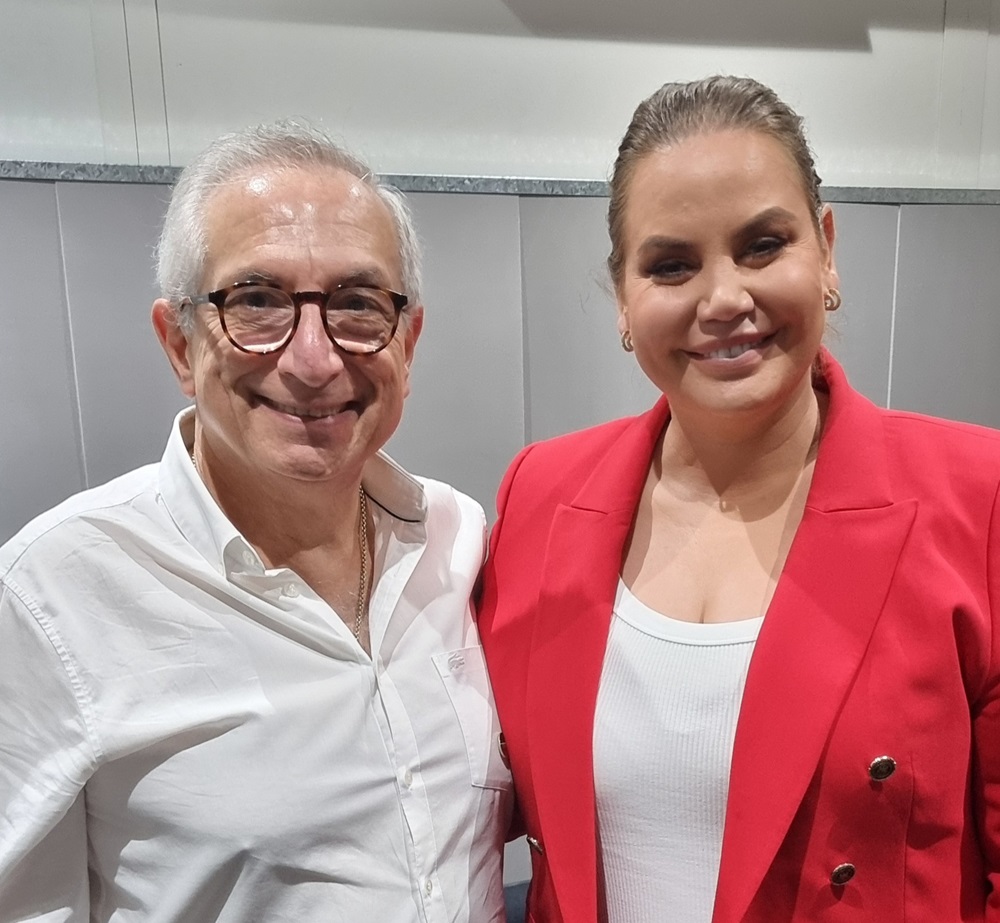
You went through hell; it was well documented. Did you wonder how you got through it?
DOKIC: I did, and I didn’t because I didn’t want anyone to feel sorry for me, and I didn’t want to feel sorry for me. Yes, I’ve had some tough circumstances. I grew up poor. I was a refugee twice, all of this that I have documented in my books obviously, and then the domestic violence and so on and so on, and racism and bullying and mental health issues where I almost took my own life twice. So, yeah, it’s been a lot, but I don’t want that to be the main point. I wanted it to be, okay, I was a victim, but I am a survivor and thriver. I wanted to go past that, I wanted to show myself but also others that you can get through things, you can get past adversity, that you can build yourself back up and no matter what’s happened in your past that you don’t have to be defined and defeated by it. That’s kinda always been my goal and I never wanted to feel sorry for myself or others to feel that way for me either.
Do you see yourself as brave and courageous or do you see yourself as a survivor?
DOKIC: I am a survivor; I’ve survived certain things, but I would like to go past that. I’d like to say I’m a victim, survivor, thriver. I’ve always wanted to go past being a victim and surviving something. I wanted to thrive. I wanted to get past that, I didn’t want to just get through it. Yeah, I do consider myself to be brave. I was like that on the court. A lot of the decisions that I had to make have been very brave. I left home at 19 and have dealt with a father that was extremely abusive and that was extremely scary as well. I felt for a long time I was letting everyone down, including my whole family. I think a lot of the decisions I have had to make have been quite brave and I’ve had to go for it in life and if I didn’t, I wouldn’t be here today. I’ve also had to be brave when it comes to myself and my mental health and the way I deal with it and find those little on percenters that were maybe left in my mind, in my heat, in my soul, in my being to not take that step and take my own life, so we’ll say brave as well, yeah.
I want to ask you about the books. First there was Unbreakable and the new one is Fearless. Firstly, were they difficult to write and did you expect them to be the best sellers that they are?
DOKIC: I didn’t expect them to be best sellers, to be honest I never even thought about that. I did say to Jess Halloran (the co-author) just when we were about to release Unbreakable, I said to her, I don’t think anyone is going to read this, and she said you have no idea what is about to happen. She was the only one, to be quite honest, that believed in it and I would not have written Unbreakable and Fearless if it wasn’t for her. She had such a massive passion for me to tell my story because she knew it. I wanted to tell my story but there was one reason and one reason only and that was to ultimately tell my story in order to help someone. I even say at the end of Unbreakable, if it helps even just one person, for me that’s mission accomplished. That’s what I wanted to do. Obviously, it has done so much more than that, for myself as well. It has been extremely cathartic; it’s been healing and pretty much the beginning of my healing process and dealing with the past and dealing with the trauma. The process in itself is not easy to write a book – writing Fearless was a little bit easier because I already know what the process was. But look Unbreakable on a lot of levels was tough. I wanted to go into Unbreakable telling my story in full, I didn’t want to hold one detail back and whoever has read Unbreakable knows what I mean by that. If I was going to do it, I was going to do it properly. I’m glad I’ve done it obviously on a lot of levels. At times it wasn’t easy, it was draining, it was mentally tough, I had to relive a lot of it, experiences as well but ultimately, I think you need to do that to heal, so it was great.
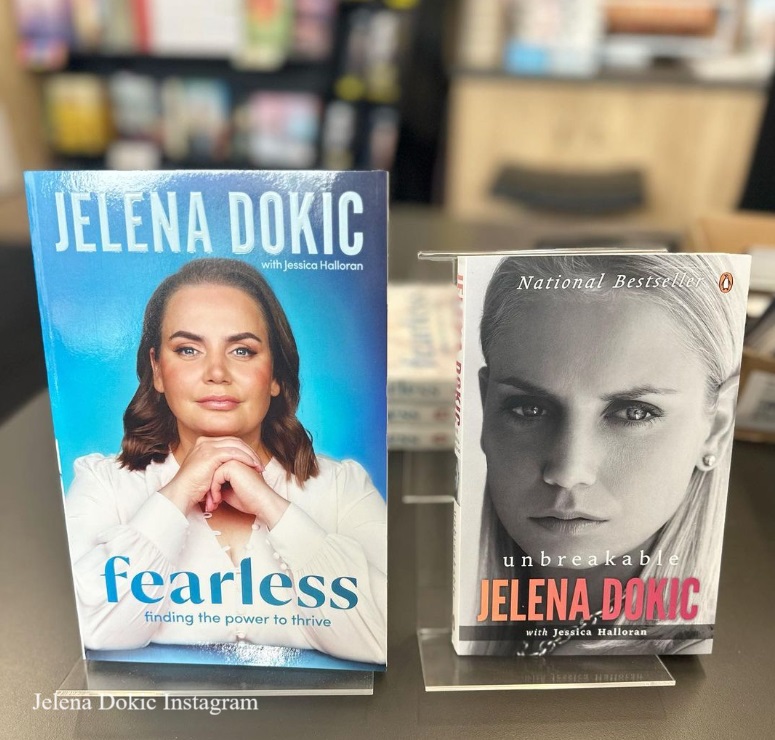
You said you have developed other aspects of your life and one of the big aspects would be the television commentary with Channel 9 Network in Australia. How important has that been for you?
DOKIC: It’s been amazing because I love tennis so much first of all and I remember I used to say to Todd (Woodbridge) before I retired that I really like commentary. He was the first one I had a conversation with and sat down with about what I was going to do post tennis. I was only 29 when I retired because of injuries and mental health. He set me down and we had the conversations and I’ve always had this massive passion for commentary and tennis and analysing it: I’ve kinda always had a tennis brain, I’ve always had a lot of numbers and statistics in my head, I really liked that. The funny thing is that a few years before retiring I used to listen to Todd and Jim (Courier) commentate and listen to them commentate the Australian Open when I was still playing, and they used to commentate my matches too. So, it’s just funny looking back on it now. Yeah, I’ve always had a passion for it and I said to Todd I don’t know what else I’m going to do but I definitely want to try and be a commentator, and I want to try and stay in tennis that way. I put in the work and took every single opportunity from radio to TV to commentary and I’m really grateful I’m hear when I am, that I’m not too bad at it and at the same time I love tennis which I think comes across.
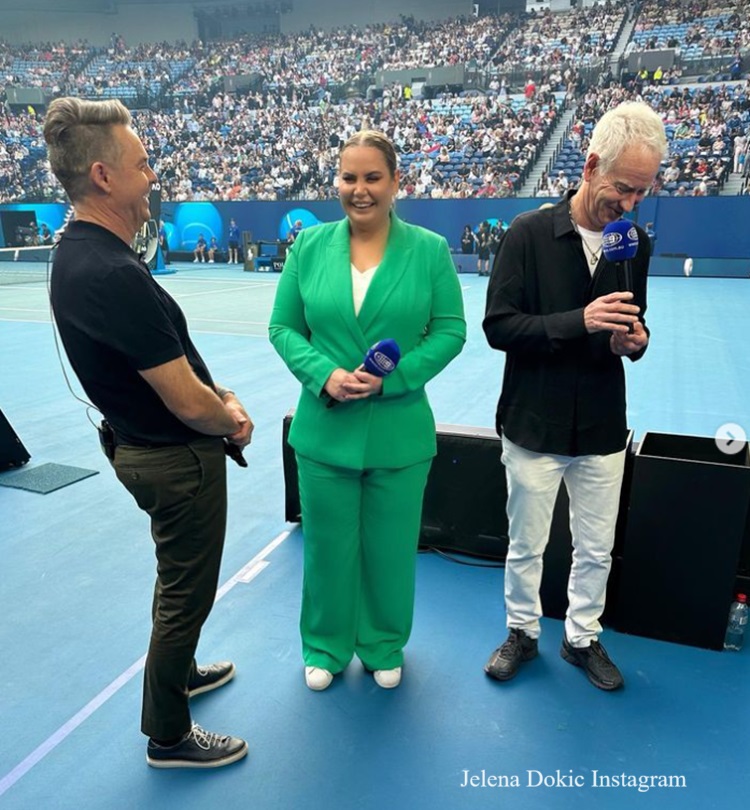
What is the best thing of your life now?
DOKIC: Oooo! I don’t think there is just one thing. I think I am very proud of myself and content with myself with what I have been able to do not just with my TV and commentary, but with my speaking, I’m on the speaking circuit full-time and to be a two-time best-selling author and have plans to now write a children’s book. I’ve ticked off an item from my bucket list, to do a Ted talk which I did at the end of last year. I think professionally it’s been amazing, and I just want to continue that because it is a big part of who I am. But the biggest I think is knowing if I didn’t have that, I’d be okay. I would very content with who I am and finding that kind of validation, not on the outside from things that I do and from people but from myself. I’m happy with who I am, the person who I am and I’m kinda finally in the open the person I was up until six and a half, when I started playing tennis. That probably sounds weird because you barely remember anything, but I was this kind of funny, bubbly kid that didn’t mind taking the piss out of myself and being goofy, but that was gone for 30 years. Regardless of what I’d be doing professionally, I’m just very happy with who I am and me being able to show that.
You were an incredible player, there’s no two ways about that, but these days can you take away good memories from those playing days?
DOKIC: Yes, I try to. Couldn’t for a very long time because a lot of them had something bad connected to it. Like my semifinal at Wimbledon after that not having anywhere to sleep, being denied, and not being allowed to come back to the hotel. Even my first quarterfinal run at Wimbledon at 16 didn’t end amazingly well with great memories because it was never enough. There’s been a lot; I don’t need to go into it, even the Olympics. I remember those wins and I think I remember and cherish them even more today because I know what I went through behind the scenes and off the court to still be able to go out there and perform … I remember those, my first big titles. I was just this kid coming from a city (Osijek now Croatia) that had a population of 60,000 people who was a refugee, who didn’t have very much that was on the world stage and one of the best players in the world. I’ll take that and I’ll take those results and remember them especially under tough circumstances.
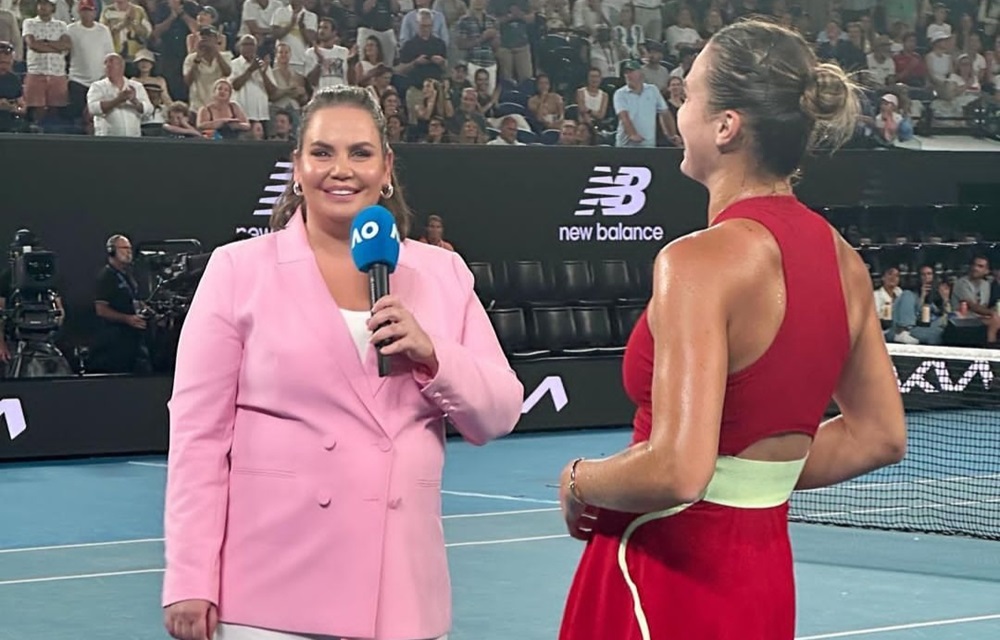
Do those memories still haunt you or having written the books and gone through the therapy, you are now able to put all those haunting days behind you?
DOKIC: Actually, no they don’t haunt me. I look at them in a way that I am very proud of myself. I actually look at them and go, wow, even under tough circumstances I was able to manage not just do something on the world stage in a sport that’s extremely brutal and individual and you have to be at the top of your game mentally, physically and I certainly wasn’t anywhere near that with everything I had going on, so I look at it as something positive these days. Something that I went through, something I now go with I’m using that as a positive, I’m using that to inspire someone else, I’m using that to help charities and organisations that can help other people and children and women in general in those situations. These days I look at it as a positive and something where I hope to turn it into a more positive thing over the next decade or two decades.
You mentioned a children’s book, you mentioned how you hope you can help children and I would think you have got a lot of love to give. Would you want to or ever entertained the idea of being a mother?
DOKIC: Yeah, I love kids. I think I was unlucky with my 19-year relationship breakdown; we were about to try having a family. I think it’s prob ably a bit late for me know but it’s definitely something I’m thinking about because I want to adopt in the future. I’ve talking about that and maybe in four, five years’ time I can see myself actually doing that. I think I can provide a child out there a loving home, even I end up being a single parent; I can definitely provide that and give someone the opportunity that maybe they otherwise wouldn’t have.
There was a moment at the Australian Open in 2022 that brought your story out even more. The on-court interview with Alize Cornet, that was a touching moment, that was an amazing moment. What do you feel about that moment when the two of you hugged and started crying on court?
DOKIC: Yeah, I was shocked that she even said anything and had amazing words of praise. I actually spoke to her this year as she’s retiring and I said ‘one more time, I’ll never forget what you did on the court’ as it was her first grand slam quarterfinal after so many tries. That was her moment, and her birthday was a few days earlier and she turned that massive moment and the spotlight to me and saying such beautiful words, so I will forever be grateful, I said that to her this year as well and we both started crying, it doesn’t happen all the time and that was amazing and came out of nowhere and it was special. I’ve had players do that off the court which is amazing, but this was extra special, and I can’t believe she did that and it just shows what kind of a person she is. I’ve said a million times thank you to her. Every time I come to the Australian Open, I remember that. I walked through where the players area is this year and got my accreditation and the first person I saw was actually her, it was unbelievable. I stopped her and said, ‘I’ve got to thank you one more time’. She said you know you’ve done that so you don’t have to keep saying it. I know but I had to because it was the Australian Open and I keep remembering that moment because it was amazing, and I was not in really such a great space, so it was very special for her to do that.
You touched on the titles you won in your career, do you have any of the trophies and the memories from those and if so, where do you keep those trophies, do you look at them?
DOKIC: I don’t have them. My father has those wherever they are. Unfortunately. I wish I did and that’s okay. I kinda at this point go this is what my story was meant to be and that’s alright. It is what it is. I think ultimately the memories bare there and my achievements are there. I’ve lived them. If today was my last day on earth, I would go despite a lot of those things I’ve had a great run. I’ve done a lot of things I never thought I would do. Like I said I came from a very small town not a lot of opportunities. When I was just eight we were in the middle of a war and if you told me I would do many things that I have already done, I would tell you I’d take it. So even though I don’t have the trophies, the memories are there which is the most important thing.
The whole Jelena Dokic story is incredible as we know, here’s enough there you’d think for a movie script and if that were to ever happen, who would you like to see play you?
DOKIC: Well, the documentary is coming out this year, we’re in the editing process and I saw it for the very first time a few weeks ago so look out for that, that will be coming out. I don’t know, maybe Jennifer Lawrence. That’s the first name that springs to mind, or Margot Robbie, I like Margot and she’s an Aussie. That would be amazing, you never know. After the documentary series maybe, it could be turned into a series or something. That would be amazing to be able to turn that into a story, maybe not about tennis, but just about the whole importance of society issues. We broke the mould, and we did it first with the Me Too movement, maybe my story in tennis as well. It would be amazing.
Do you see yourself as a beacon of hope?
DOKIC: I would like to, yeah, absolutely. I talk about that in Fearless at the end of it and I wanted Fearless to be a book of hope and belief and you can kinda get through anything, and I think ultimately if I didn’t have that belief in myself, I wouldn’t be here today, even through they were harder times. I never give up hope and that’s what I think my strength is. I would like someone to look at me and my story and think it’s worth never giving up because you just never know what my happen.
Last question and I think I know what your answer will be, but do you like yourself, do you love yourself?
DOKIC: I do. I think for a very long time I was put down. That’s what domestic violence is and child abuse and it leads you into having all this trauma, depression and anxiety; PTSD is a terrible thing to go through and you are always so negative and you don’t see a way out. I am so comfortable in my skin and who I am and that has also allowed me, as people say, to take the trolls on and the body image positivity because I am so comfortable about it and I feel so strongly about it, I believe in that and myself so that’s why I said when you asked me the first question if this is the most content and happy I have ever been, I will tell you yes. Is this the best time of my life in my 40 years? Absolutely.


